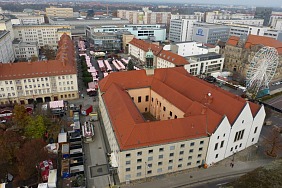Working remotely in Brazil as a digital nomad is an increasingly popular lifestyle choice. Whether you’re a freelancer, entrepreneur, or remote worker, you can enjoy the sun, sand, and surf while still being productive. But there are some key considerations to keep in mind when making the switch.
Finding Job Opportunities
The number of remote job opportunities in Brazil is growing rapidly. Many companies now offer remote work as an option, and they often advertise job openings on job search websites, such as Indeed and LinkedIn. You can also search for remote jobs on specialist websites such as WeWorkRemotely and RemoteOK. It’s important to research the company and the job in question before applying, and make sure it’s the right fit for you.
You can also network with other digital nomads and remote workers in Brazil. There are many online communities, such as Facebook groups and Slack channels, where you can connect with like-minded people and share job opportunities. It’s also a great way to get advice from experienced digital nomads.
Productivity and Communication
Working remotely can be challenging, and it’s important to establish a productive routine and good communication practices when working in Brazil. Make sure you have the right tools, such as a laptop, a reliable internet connection, and a comfortable workspace. If you’re working with a team, you should use video conferencing software, such as Zoom and Skype, to stay in touch.
It’s also important to set clear goals and deadlines, and communicate regularly with your team. You can use project management tools, such as Trello and Asana, to keep track of tasks and progress. Having a plan and staying organized will help you stay on track and be more productive.
Legal Considerations
When working remotely in Brazil, you should be aware of the local laws and regulations. You may need to register for a business license or obtain a visa, depending on the type of work you’re doing. It’s also important to understand the tax implications of working remotely in Brazil. It’s best to consult with a lawyer or accountant to ensure that you’re compliant.
You should also consider health insurance, as many countries do not offer a public health system. You may need to purchase a private health insurance policy to cover medical expenses. It’s important to research your options and select a plan that fits your needs.
Career Development Opportunities
Working remotely in Brazil can open up new career development opportunities. You can connect with like-minded professionals from around the world, and collaborate on projects and share ideas. You can also attend conferences, workshops, and other events to learn new skills and network with potential employers.
There are also many online courses and learning platforms, such as Udemy and Coursera, that offer a wide range of courses to help you develop your skills. Many of these courses are free or low-cost, so you can learn a new skill without breaking the bank.
Working remotely in Brazil can be a rewarding experience, and it can open up a world of opportunities. With the right tools and resources, you can enjoy the freedom and flexibility of working remotely while still being productive and successful.














